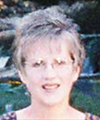One study about expressive writing randomly assigned participants to four different groups. People wrote 20 minutes a day for four days about:
- a non-emotional control topic
- a life trauma
- their best possible future selves
- both a trauma (the first two days) and their best possible future (the last two days.)
For the best possible self assignment, people were instructed to think about their futures as the realization of all their life dreams. At the end of the study researchers found that writing about one’s best possible self was associated with a significant increase in positive mood. Individuals who wrote about their best possible selves were also significantly higher in psychological wellbeing three weeks after the study was completed. Five months afterward, the best possible self group had the lowest number of visits to the doctor. Even the trauma only group and the combination group had significantly lower health visits than the control group.
So I tried it. What I wish for myself is potent and seductive. Taken seriously, the blend between wishing and reality begins to blur. The preferred self plans a bright future.
Then the skeptical part of the brain objects. “Wishing is not enough. A fervent desire of the heart cannot change one’s circumstance.”
But it can. And it does. Writing down one’s fervent hopes helps them to become part of a life experience. Hope is more concrete—just look at the page. Defining desire in words makes it easier to act upon.
Excuse me. I’ve got to go now. Got to write down what I want and then find ways to make it come true.




